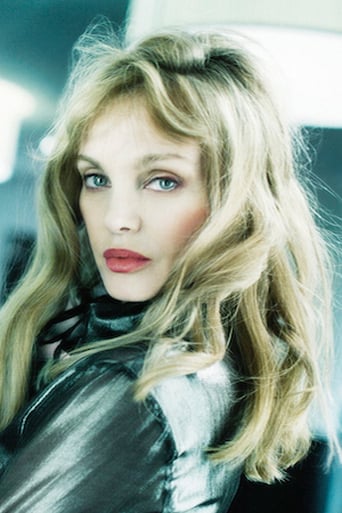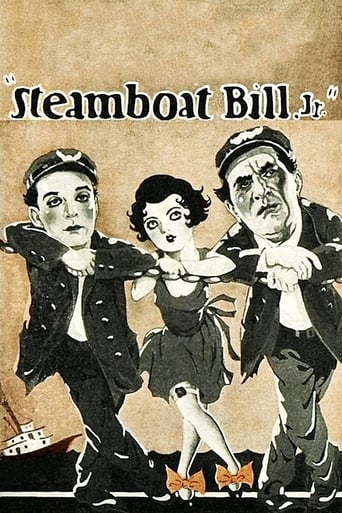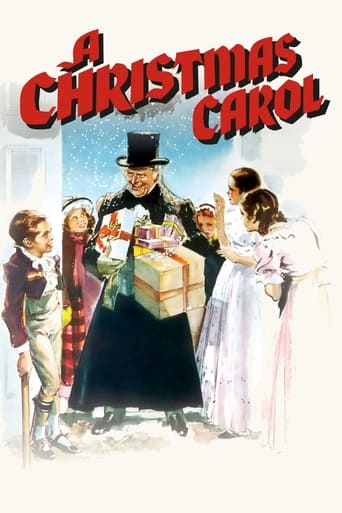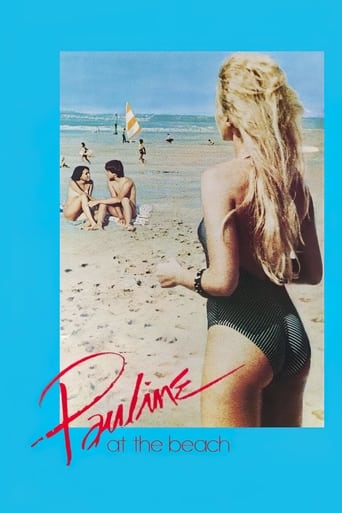
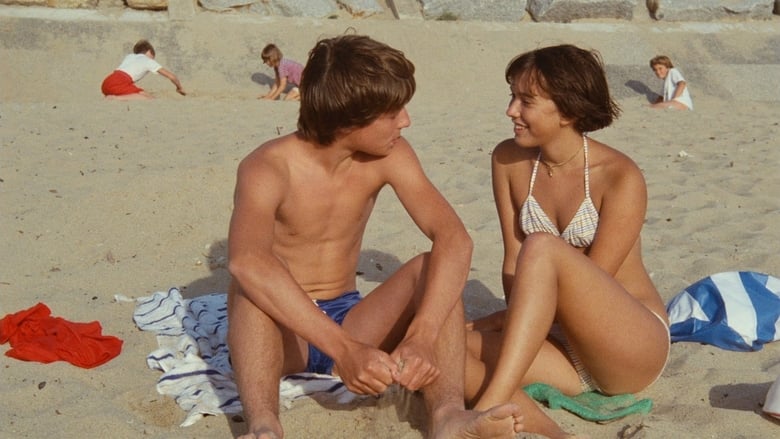
Pauline at the Beach (1983)
Marion is about to divorce from her husband and takes her 15-year-old niece, Pauline, on a vacation to Granville. There, she meets an old love...
Watch Trailer
Cast
Similar titles

Reviews
Wonderful Movie
A movie that not only functions as a solid scarefest but a razor-sharp satire.
A great movie, one of the best of this year. There was a bit of confusion at one point in the plot, but nothing serious.
While it doesn't offer any answers, it both thrills and makes you think.
So this movie is ostensibly about a young girl, Pauline, a ripening seed so to speak, and her summer holiday in north-west France. Rohmer however uses Pauline to expose the fallacies of the adults she runs into, who all have various misconceptions about love that make them unable to be happy.Rohmer, I've noticed, likes his flowers, and I felt quite peaceful looking at the hydrangeas in the film, they're much better in a warm environment (I'm from the UK). There's a great shot as well of some roses outside Pauline's bedroom window, they're mostly buds, with a couple of half-flowered pinks and some quite fully out red ones. Metaphoric I presume for the joys to come and her stage of development. Aside from the relationships, which I'm going to focus on, I liked the holiday feel here, the way the beaches were shot reminded me of when I was a kid holidaying (actually in pretty much the same area), the sound of the sea breeze and the windsurfers jetting about.Near the start there is an evening get together where the characters are discussing their conceptions of love, Marion is a fashion designer, a leonine blonde with the kind of body that would have had her cast as an extra on Baywatch in a snap, she wants to burn with love, brûlant, I believe is the word she uses (lovely French word). Marion has an Orphic concept of love, where she believes that people are completed by love, that she must look for a complement to her personality. Pierre, a graduate student who loves his windsurfing believes in well-matched love, and doesn't like the complementary theory, he thinks that people should be strong individuals and do not need to be completed by someone else. He believes that love is a long slow process where the strength of love builds gradually.Pauline is Marion's young niece, aged sixteen I believe. Marion is looking after her, though in my opinion it is a close run thing whether Marion should be looking after Pauline or Pauline Marion. Pauline has no conceits regarding love, she will take things as they come, this seems to me to be by far the most sensible attitude. Henri is an ethnologist, tied to France by only his daughter, he is much more at home kayaking in Sulawesi, for him he is worn out with love and is more looking for a roll in the hay. His favourite record is tellingly called Chant des îles (Call of the Islands in other words). Marion is the most annoying character for me (I'm sure everyone has their favourite), actually one of the most annoying characters I have ever seen in a movie. She leads Pierre on but behaves very distantly towards him. All he wants is to be with her, and he sees that her affair with Henri is founded on an illusion. All she sees when she sees Pierre though is someone who could take Pauline's virginity for her, a suggestion she repeatedly pushes on him, and is the ultimate in insults. Her great hypocrisy is that she tells Pierre that love can't be forced, however she then tries to do exactly that with Henri.Mairon is one of the breed of unfortunate women who likes to look down her nose at young men, falsely believing herself to be more sophisticated. Everyone has preferences, but she has developed her preference into a conceit. Perhaps the most likable character in the film is the boy Sylvain, who is Pauline's age and very gentlemanly. Marion refers to him as a "'tit cretin", even though she knows absolutely nothing about him (at another point she describes boys of Pauline's age as stupid and brutal - bête et brutale). She talks a lot about seeing the depth of a person's soul, that's what you see at the moment of love, not that she has actually been in love before, as she readily admits. So I spent a lot of the movie being angry with Marion.The quote at the start of the movie was not translated on the R1 DVD, "Qui trop parole, il se mesfait" which is from Chretien de Troyes, "No one can be too talkative without often saying something that makes him look foolish". That sums Marion up really well, but probably Pierre and Henri too.Perhaps the message of the movie, as Pauline is the only character to receive affirmation, is that we should love as if we were children.One last word is that this movie is a bit of an advert for drink driving! Marion and Henri both are pretty wasted when they drive home from a party.
In the end of the summer vacation, the fifteen year old Pauline (Amanda Langlet) travel with her older divorced cousin Marion (Arielle Dombasle) to her seaside house in Granville. While on the beach, Marion meets her old friend Pierre (Pascal Greggory), who has a crush on her, and his new acquaintance Henri (Féodor Atkine), who lives in Oceania and is spending vacation with his young daughter in the resort. In the night, they go to a casino and Marion has one night stand with Henri, feeling a great passion for him. However, Henri is a wolf and has no interest in having any commitment with Marion. Meanwhile Pauline listens and observes the behavior of the older people while she has a little but disappointing romance with a boy of her own age.A friend of mine is a great fan of Eric Rohmer and this is the first movie of this director that I watch; however I am disappointed with "Pauline à la Plage", maybe because of my greatest expectations with his work. This low budget movie has a simple, silly and shallow story; reasonable acting and empty lines; common screenplay without any originality and very poor camera and cinematography. I have not found anything special in this flick, and even the body of Arielle Dombasle is beautiful but not sexy. My vote is six.Title (Brazil): "Pauline na Praia" ("Pauline at the Beach")
Rohmer's version of the intricacies of love,life and adulthood,in general,makes for a great introduction to the French New Wave in one's late teens,probably. People and specific faces have always been Rohmer's staple issues and yet every time he does it with such a great deal of novelty. A love story 'between' 4,strike that,5 people(the candy girl is no less a part of the ensemble than Pauline herself) is not easy to conceive and much less, execute on camera. The excess in dialogue is perhaps the most un-Rohmeresque aspect of this number. A couple of performances perhaps were a bit out of tune with the rest of the cast's inputs. Sylvain,perhaps could have been better played by La Brosse. But the film,to my mind,is certainly not the best to have emerged from the Eric Rohmer factory.
Pure Rohmer essay on love and relationships. What I find very interesting about Rohmer's film is that you can always think back and apply some aspect of the story to your own life. Difficult break-ups, being in love with someone who doesn't love you or worst, who loves someone you consider an idiot. Just like Pierre is having difficulty explaining that it's not jealousy if he doesn't want Marion to get hurt by getting involved with Henri. Love, when you think of it, is one of the most difficult thing to explain. Actually, can you explain it? Sometimes, the obvious for one is not the obvious for another. And the "naïveté amoureuse" of the other can make someone go crazy.The dialogs in this movie - and there's quite a few - are intelligent, well thought by the director. Some themes that I noted: in love, you share everything, even the suffering; perfection is oppressing; love is a type of illness. Each sentence of the script can practically be dissected.A final word: I liked the performance given by Arielle Dombasle. She reminds me of Pascale Ogier in another great Rohmers film, "Les Nuits de la pleine lune", that came out one year later.80/100 (***)Seen at home, in Toronto, on November 14th, 2004.

